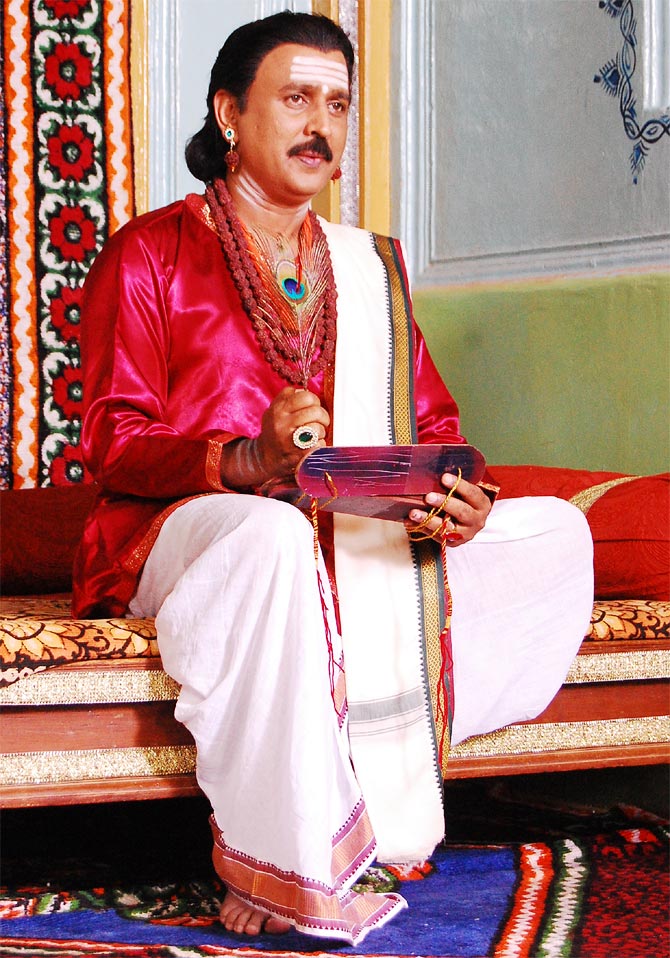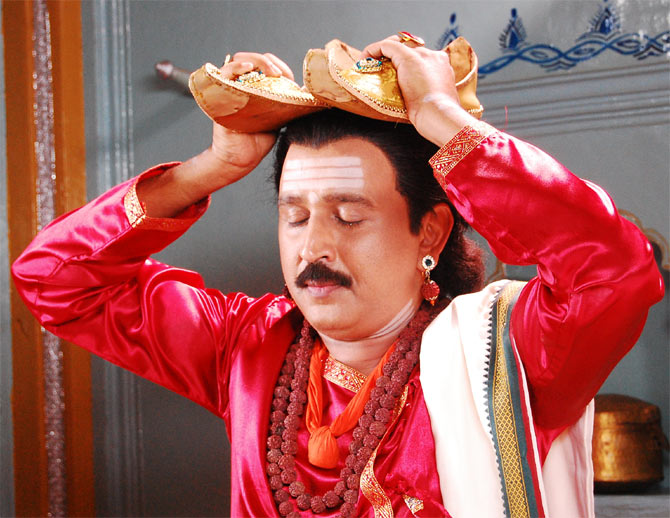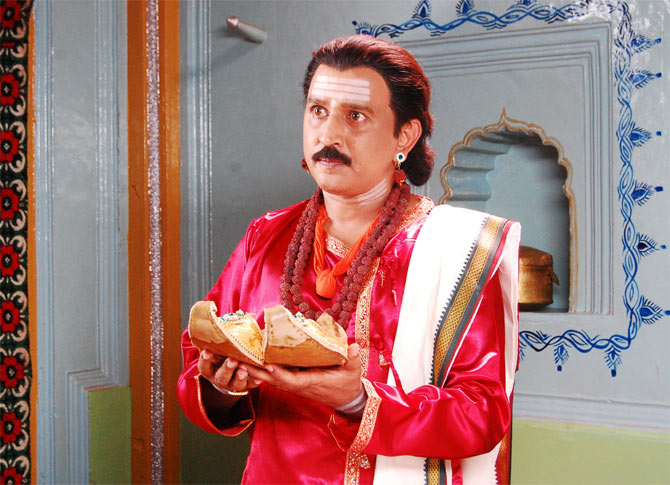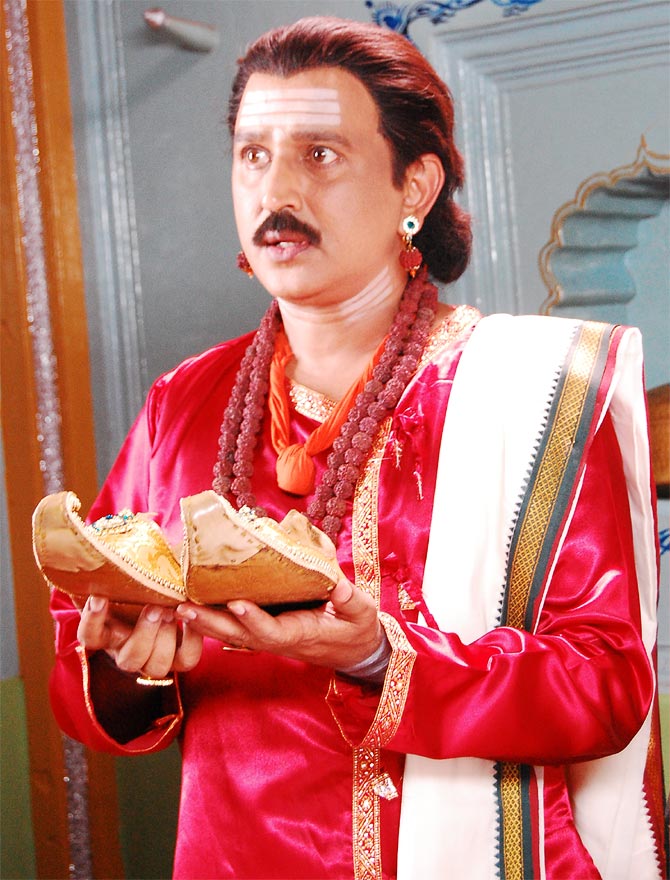 | « Back to article | Print this article |
'Maha Sharana Haralayya is my first devotional film'
Popular Kannada actor Ramesh Aravind’s first devotional and historical film Maha Sharana Haralayya will release on Friday, January 10, across Karnataka.
He becomes the third actor after Honnappa Bhagawathar and Ashok to reprise the role of Basavanna, a renowned 12th century social reformer, poet and saint of Karnataka. Lingayats, Karnataka’s largest community, are followers of Basavanna.
Haralayya, a cobbler, gained prominence by carving out footwear out of his own skin for Basavanna.
Legend has it that the social reformer acknowledges Haralayya’s gesture by placing the slippers made for him on his head.
Dancer and actor Sridhar plays the role of Haralayya.
Maha Sharana Haralayya, also stars Ramakrishna, Ramesh Bhat, Raju Dingri, Vikram Udayakumar, Jayalakshmi, Sheela, and Sumithra.
The film is directed by B A Purushottam. The music is by Jimmy Raj and cinematography by Gauri Venkatesh.
In this interview Ramesh Aravind talks about what it meant to play a historical role for the first time.
What is Maha Sharana Haralayya all about?
Maha Sharana Haralayya is about the first notable inter-caste marriage recorded in Karnataka.
A cobbler’s son falls in love with a Brahmin girl and Basavanna’s revolutionary idea of encouraging it leads to bloodshed in the city of Kalyan.
'I have been an ardent admirer of Basavanna's beliefs and ideals'
How did you get to sign the film?
Director Purushottam approached me with the script of the film.
I have never done a historical role. This is also my first devotional movie.
More importantly, I have been an ardent admirer of Basavanna’s beliefs and ideals on equality, secularism and democracy. So I felt honoured to play this role.
What kind of preparation went into the role?
Physically, we tried various hairstyles and crowns to get the right look.
Eventually, it was decided not to mess with the popular existing image of Basavanna that we see in our calendars and textbooks.
I read his vachanas to understand the great philosopher and social reformer. I also read a few dramas based on him written by Girish Karnad, Chandrashekara Kambara and P Lankesh.
'I would love to do serious roles'
How difficult was it to learn the vachanas?
Vachanas are written in simple Kannada. Perhaps that’s why they have become so popular.
The dialogues in the film were different. The manner in which the dialogues are written and delivered, the use of words and diction are all quite different from what I have done before.
I trusted the director fully as he knew the stuff quite well. It was a good learning experience for me.
Is this film an attempt to break out of your comic image and do serious cinema?
Yes, I would love to do serious stuff any time. It is now definitely possible to work in a new line of films.
What can the audiences expect from Maha Sharana Haralayya?
The film will be a good viewing experience. It is a moving story.
The film brings to celluloid Basavanna’s dream of a casteless society.
'My film with Upendra has been deferred for now'
What happened to your plans to direct Upendra? Is the project still on or has it been deferred?
It has been deferred for now. Both of us are busy with our own things. We will work together perhaps later.
What went wrong with your previous release Mangana Kaili Manikya? There was hardly any pre-publicity.
I don’t believe in doing post-mortems. There were some great fun moments in the making of the film and the film itself.
What are you currently working on?
I am in the last stage of pre-production of a Tamil film which we will announce in a couple of weeks.
I have also finished writing scripts for two Kannada movies. One of them is a love story and the other is a mass entertainer that will suit a top star.



